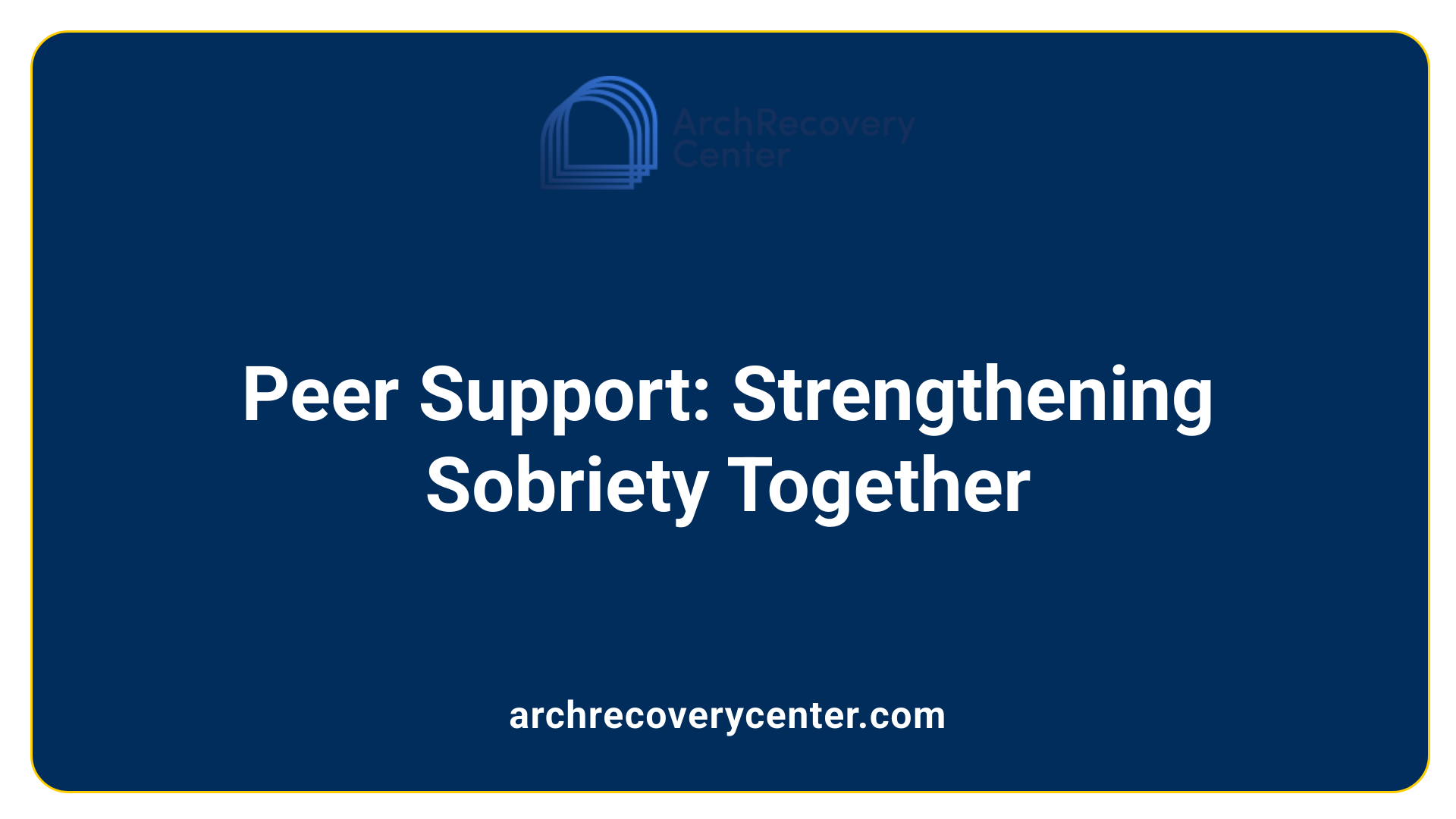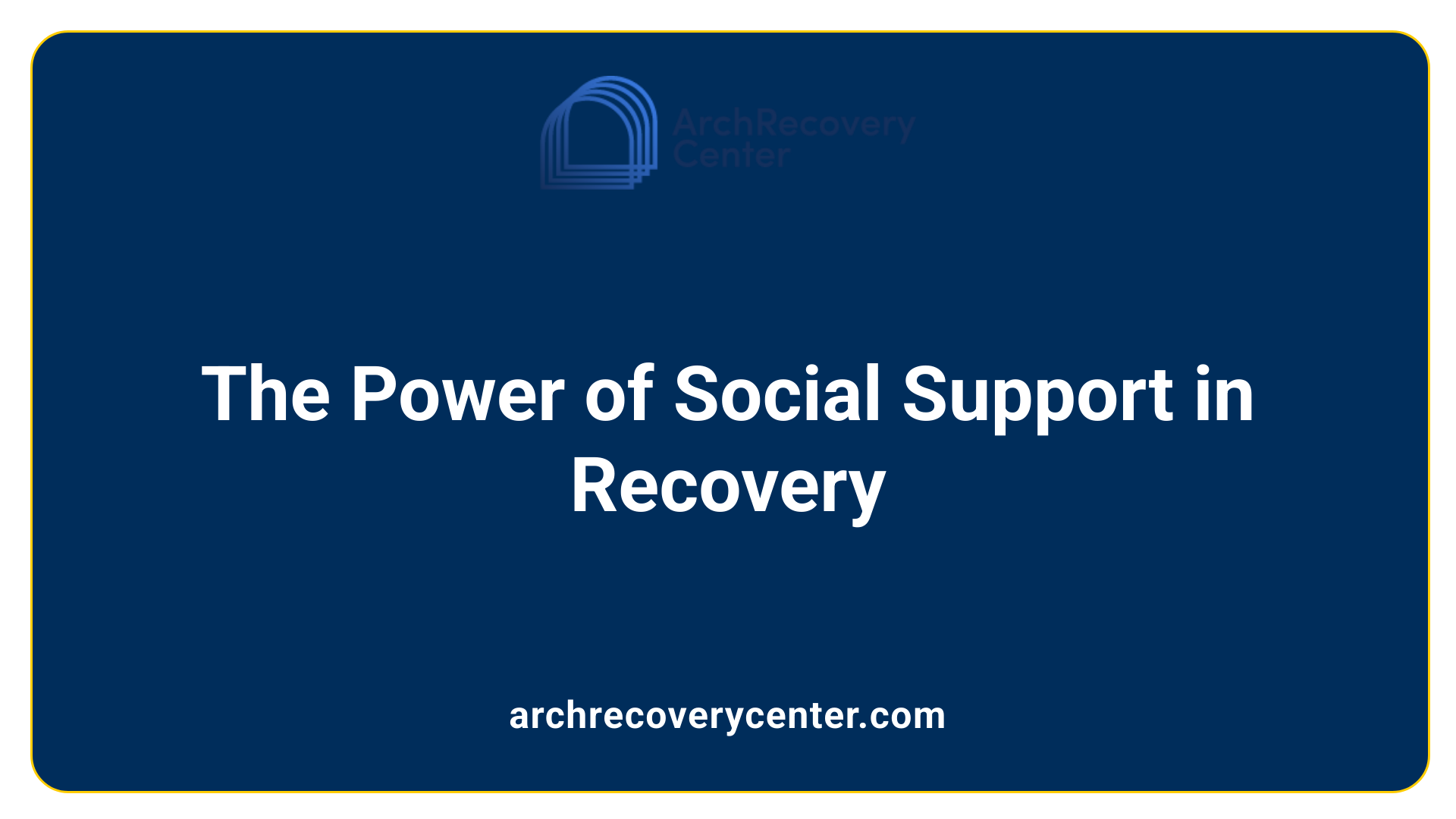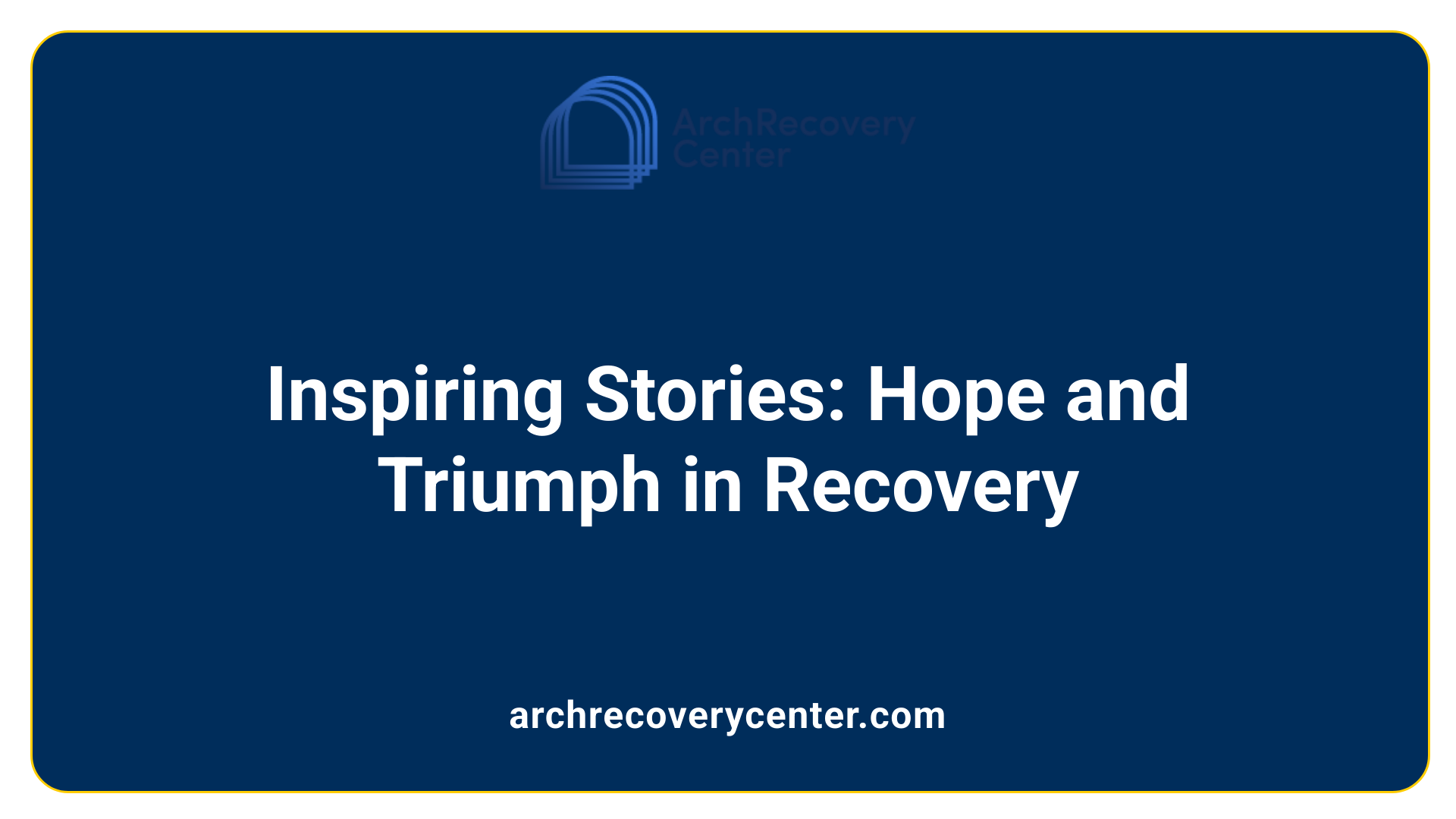The Role of Support Groups in Maintaining Sobriety After Residential Treatment

Introduction
Maintaining sobriety after residential treatment can be a daunting challenge for many individuals recovering from substance use disorder. The role of support groups in this critical phase of recovery cannot be overstated. These groups provide a foundation of community, accountability, and encouragement that is essential for navigating the path to lifelong sobriety.
The Significance of Support Groups in Recovery

Why are support groups important in the recovery process?
Support groups are essential in the recovery journey for individuals facing substance use disorder (SUD). They create a supportive environment where members can share their experiences and emotions without fear of judgment. This non-judgmental space significantly reduces feelings of isolation, which many individuals in recovery often experience.
Community Support
One of the primary benefits of support groups is the sense of community they foster. Members find camaraderie with others who understand their struggles, which can be pivotal in navigating the challenges of recovery. These groups often meet regularly, providing a consistent support system that encourages participants to stay connected.
Accountability
Accountability is another critical aspect of support groups. Members are encouraged to set recovery goals and hold each other accountable for their progress. This structure fosters commitment to sobriety as individuals share their successes and setbacks, knowing their peers are there to support them.
Motivation and Inspiration
Support groups serve as a source of motivation and inspiration. Seeing fellow members achieve long-term sobriety can instill hope and drive in individuals who may feel discouraged. By observing others' journeys, they learn that recovery is possible and attainable.
Social Support Network
Ultimately, support groups build a vital social support network. This network is crucial for ongoing recovery and sustained sobriety, providing emotional and practical assistance. With this support, individuals are more likely to navigate challenges effectively and maintain their commitment to recovery.
The Role of Peer Support in Sobriety Maintenance

How do peer support groups contribute to addiction recovery?
Peer support groups play a vital role in addiction recovery by connecting individuals with others who have faced similar challenges. These connections are crucial, as they demonstrate that recovery is achievable, instilling hope and motivation in members.
Building Community and Reducing Isolation
Participating in a peer support group fosters a strong sense of community. This camaraderie is essential to combat the feelings of isolation that often emerge after treatment. Members come together regularly, allowing them to share experiences and provide emotional support to one another. This social interaction significantly enhances emotional well-being and helps maintain sobriety.
Enhancing Accountability
Accountability is another significant benefit of peer support groups. Members are encouraged to set personal recovery goals and openly share their progress, fostering a commitment to stay on track. This mutual accountability ensures that individuals are less likely to relapse, as they are reminded of their goals by peers who understand their journeys.
Addressing Stigma Surrounding Substance Use
Lastly, peer support groups actively work to reduce the stigma surrounding substance use disorders. By creating a safe, non-judgmental environment, members can share their struggles and emotions freely. This openness promotes healing and validates their experiences, reinforcing that addiction is a common challenge that can be overcome.
In summary, peer support groups offer invaluable resources for those in recovery, combining connections, community, accountability, and a stigma-free atmosphere, ultimately enhancing the prospects for lasting sobriety.
Understanding Social Support's Impact on Recovery

What is the overall role of social support in recovery?
Social support plays a crucial role in recovery by fostering positive health outcomes. Research has consistently shown that individuals with greater social support experience better quality of life and reduced psychological distress. For example, a study involving 229 participants in recovery homes revealed that individual-level social support significantly correlates with lower stress, which is vital for maintaining sobriety.
Improved Health Outcomes
The benefits of social support extend far beyond emotional reassurance. Participants in mutual help organizations such as Alcoholics Anonymous experience enhanced social support, contributing to improved treatment outcomes, including higher abstinence rates. This highlights how structured peer support can facilitate not only emotional but practical assistance, such as accountability in managing one's recovery.
Quality of Life Enhancements
Supportive social networks are essential for individuals in recovery. They help participants cope with old triggers and potential relapses, nurturing healthier habits and lifestyle choices. People involved in supportive communities often report a more significant improvement in their overall well-being, indicating that friendship and encouragement are foundational to their recovery processes.
Psychological Benefits
Additionally, social support reduces feelings of isolation—common in those struggling with substance use. This emotional backing fosters a sense of belonging and empowerment, which can make all the difference in handling life's challenges.
In conclusion, as studies suggest, higher levels of social support correlate with lower substance use rates and better retention in treatment programs, underscoring the importance of maintaining strong social connections throughout the recovery journey.
Varieties of Support Groups for Alcohol Recovery
What are some examples of support groups for alcohol recovery?
Support groups play a vital role in the recovery journey for individuals battling alcohol addiction. These networks provide a sense of community, accountability, and emotional support, leading to better recovery outcomes. Here are some notable types of support groups for alcohol recovery:
| Support Group | Description | Focus Area |
|---|---|---|
| Alcoholics Anonymous (AA) | The most recognized mutual help organization, AA follows a 12-step program that incorporates spiritual elements to encourage sobriety. | Spiritual growth and peer support for lasting sobriety |
| SMART Recovery | This program emphasizes self-management and teaches coping strategies through a secular framework, empowering members in their recovery. | Cognitive skills and self-empowerment |
| LifeRing | A secular alternative to traditional support groups, LifeRing emphasizes peer support and community for those seeking abstinence. | Secular, drug-free lifestyle |
| Women for Sobriety | Designed specifically for women, this program fosters emotional and spiritual growth in recovery, addressing unique challenges faced by women. | Emphasizing emotional support and personal development |
| Secular Organizations for Sobriety (SOS) | This group promotes sobriety without any religious components, focusing on individual responsibility and community support. | Non-religious approach to recovery |
These groups cater to different preferences and needs among individuals seeking recovery. By reinforcing the benefits of professional treatment and providing essential social support, they contribute significantly to maintaining sobriety after treatment. Ultimately, the choice of support group can depend on an individual's personality and beliefs, making it crucial to find the right fit for seamless recovery.
The Psychological and Emotional Benefits of Group Therapy
Emotional Support
Group therapy serves as a vital source of emotional support for individuals in recovery from substance use disorders. By providing a safe space where participants can share their feelings without fear of judgment, group therapy helps individuals process complex emotions related to their addiction. This environment fosters a sense of belonging, helping to alleviate feelings of isolation and loneliness that often accompany recovery.
Coping Strategies
Participants in group therapy benefit from shared experiences and practical advice on managing cravings and triggers. Members can discuss their challenges and successes, exploring different coping strategies that have worked for others in similar situations. This collective wisdom not only enriches individual experiences but also equips participants with useful tools for navigating their recovery journey effectively.
Community Connection
Group therapy cultivates a strong sense of community, enabling individuals to connect with others who understand their struggles. These connections can enhance emotional health post-treatment by fostering empathy and understanding, critical elements in healing and personal growth. Having a supportive network makes it easier for individuals to stay committed to their sobriety goals.
Personal Growth
As participants share their journeys, they often experience significant personal growth. Group therapy encourages self-awareness, self-reflection, and the setting of personal recovery goals. Feedback from peers can also motivate individuals to celebrate their achievements and confront challenges constructively, facilitating an empowering recovery process.
How Support Groups Prevent Relapse and Support Long-term Sobriety
Relapse Prevention
Support groups play an essential role in reducing relapse rates among individuals recovering from substance use disorder. Studies reveal that social support correlates with lower relapse risks and improved recovery outcomes. For instance, individuals engaged in support groups report feeling more accountable, which reinforces their commitment to sobriety.
Ongoing Support
Participation in support groups provides continuous emotional and practical support that is vital in navigating the challenges of recovery. Regular meetings create a network of peers who can share experiences, advice, and encouragement, which is crucial when faced with triggers or cravings. This built-in community helps individuals feel less isolated, thereby reducing the likelihood of returning to substance use.
Skill Development
Support groups like Alcoholics Anonymous and SMART Recovery not only provide a sense of community but also teach valuable life skills. Members learn to manage cravings, develop better communication, and cultivate resilience, equipping them with tools necessary for maintaining sobriety. This skill development is a pivotal part of sustaining recovery over the long term.
Empowerment
Being part of a support group fosters empowerment by showcasing success stories of other members. Witnessing peers navigate challenges and achieve long-term sobriety instills hope and motivation. This shared journey promotes a communal approach to recovery, reminding individuals that they are not alone in their struggles.
Practical Guidance for Engaging with Support Groups Post-Treatment

Finding the right group
Selecting an appropriate support group is essential post-treatment. Look for groups that resonate with your recovery goals, whether they are 12-step programs like Alcoholics Anonymous or alternatives such as SMART Recovery. Consider factors such as location, meeting frequency, and group dynamics to ensure a supportive environment.
Engagement strategies
Engagement is key to maximizing your support group experience. Attend meetings regularly, actively participate in discussions, and be open about your experiences. This not only helps you gain insights but also fosters connections with fellow members who can understand your journey.
Utilizing resources
Many support groups provide resources beyond meetings—for instance, educational materials, recovery apps, or community outreach programs. Use these resources to enhance your understanding of addiction recovery and acquire practical skills that could improve your coping strategies.
Maintaining commitment
Commitment to your support group is crucial for sustaining your recovery. Set personal attendance goals and track your progress. Consider finding a recovery buddy from the group to check in with regularly. Their support can significantly enhance your accountability, reducing relapse risks and reinforcing your commitment to sobriety.
Personal Testimonies: Success Stories from Support Groups

Individual Experiences
Many individuals in recovery share powerful stories about their journeys through addiction and into sobriety, often highlighting the role of support groups in their success. One common thread is the recounting of how initial participation in groups like Alcoholics Anonymous (AA) or SMART Recovery provided a sense of belonging that was previously missing. Members frequently describe their first meeting as both intimidating and comforting, as they realize they are not alone in their struggles.
Inspiration
Support groups serve as a source of inspiration as individuals listen to others who have faced similar challenges and emerged victorious. For instance, a former participant in a peer support group shared that hearing a strong success story from another member motivated him to push through his own tough days. The shared victories create a ripple effect of hope, encouraging others that sobriety is achievable.
Overcoming Challenges
Participants often discuss the importance of learning to navigate the triggers and challenges of recovery. Stories of setbacks followed by resilience are common, with many attendees crediting their support networks for providing essential coping strategies. Learning from peers who have encountered and overcome similar obstacles proves invaluable in moments of vulnerability.
Motivation
Each meeting revitalizes members' commitment to staying sober. Through accountability and shared experiences, members motivate one another to achieve personal recovery goals. The emotional support offered in these groups often leads to renewed determination, as individuals rally together to uplift one another during difficult times, contributing to ongoing success in their recovery journeys.
Conclusion
Support groups are an indispensable component of the recovery process following residential treatment. By offering emotional support, fostering community, and providing accountability, they play a vital role in sustaining sobriety and preventing relapse. These groups serve as a beacon of hope and inspiration, showing that recovery is not a solitary journey but a shared experience towards healing and growth.
References
- The Importance of Social Support in Recovery Populations
- The Role of Support Groups in Addiction Recovery
- Aftercare: Addiction Recovery Support Groups
- The Role of Group Therapy in Building Long-Term Sobriety
- The Role of Support Groups in Substance Use Disorder Recovery
- The Role of Support Systems in Achieving Sobriety - Westwind
- Social Support Groups and Their Role in Recovery
- 10 Reasons to Have Support Groups in Addiction Recovery
- The Role of Peer Support Groups in Substance Abuse Recovery
- 10 Benefits of Peer Support in Addiction Recovery | All Points North
Recent articles

The Benefits of Journaling During Recovery from Addiction
April 25, 2025
Unlocking Inner Strength: Harnessing Journaling for Addiction Recovery

How to Develop a Sober Identity
April 25, 2025
The Path to Self-Discovery and Lasting Sobriety

What Happens After You Complete Residential Treatment?
April 25, 2025
Navigating the Path to Lasting Sobriety After Residential Care

The Importance of Medically Supervised Detox for Safe Withdrawal
April 25, 2025
Ensuring Safety and Success in Addiction Recovery

Withdrawal Signs of Gabapentin Addiction
April 25, 2025
Understanding the Risks and Symptoms of Gabapentin Withdrawal

How Addiction Affects Physical Health
April 25, 2025
Unraveling the Hidden Damage: The True Impact of Addiction on the Body

How to Build New Traditions in Recovery
April 25, 2025
Reimagining Holiday Celebrations for Lasting Sobriety

How Nutrition and Wellness Programs Enhance Detoxification
April 24, 2025
Unlocking the Body's Natural Detox Power Through Nutrition and Wellness

Prescription Drug Overdoses on the Rise in Bensalem
April 24, 2025
Bensalem Confronts Escalating Prescription Drug Crisis

The Link Between Fitness and Improved Mental Clarity
April 24, 2025
Unlocking Cognitive Power Through Movement

Creating Healthy Habits in Residential Recovery Programs
April 24, 2025
Building a Foundation for Long-Term Sobriety

Sober Holidays – You Can Do It
April 24, 2025
Celebrating the Season Soberly: Strategies for a Joyful, Alcohol-Free Holiday

What Is Rehab?
April 24, 2025
Understanding the Path to Recovery and Independence

Signs Your Loved One May Need a Detox Program
April 24, 2025
Understanding and Recognizing the Urgent Need for a Detox Program

The Dangers of Fentanyl and the Role of Detox in Saving Lives
April 23, 2025
Confronting the Fentanyl Crisis: From Risks to Recovery

Why Residential Treatment is Ideal for Individuals with Chronic Relapse
April 23, 2025
Breaking the Cycle: The Power of Residential Treatment in Chronic Relapse Recovery

The Role of Peer Support in Addiction Recovery
April 23, 2025
Harnessing Peer Power in the Fight Against Addiction

How to Overcome Procrastination During Sobriety
April 23, 2025
Conquering Delay: Strategies for Staying on Track in Sobriety

How to Handle Conflict in Recovery Environments
April 23, 2025
Building Resilience: Mastering Conflict Management in Recovery Settings

How to Handle Setbacks in Your Recovery Journey After Detox
April 23, 2025
Navigating the Challenges of Sobriety: Overcoming Obstacles Post-Detox

How Prescription Drug Addiction Impacts Relationships and How to Heal
April 23, 2025
Breaking the Silence: Navigating the Complexities of Prescription Drug Addiction in Relationships

Is Your Parent in Need of a Prescription Drug Rehab?
April 22, 2025
Uncovering the Hidden Signs of Prescription Drug Dependency in Seniors

What Does Porn Addiction Look Like
April 22, 2025
Understanding the Hidden Struggles of Porn Addiction

The Role of Empathy and Compassion in Supporting Others' Sobriety
April 22, 2025
Fostering Connection and Healing in Addiction Recovery

Healing Addiction with Emdr Therapy
April 22, 2025
Trauma-Informed Approaches Transform Addiction Recovery

Types of Alcoholics
April 22, 2025
Decoding the Diversity of Alcohol Dependence

How Residential Treatment Supports Individuals with Severe Addiction
April 22, 2025
Comprehensive Support Systems for Severe Addiction Recovery

What Is Codependency?
April 22, 2025
Unraveling the Complex Web of Dependence and Emotional Entanglement

How to Celebrate Milestones in Sobriety
April 22, 2025
Marking the Journey: Celebrating Your Sobriety Milestones

How Residential Treatment Can Help You Overcome the Shame of Addiction
April 22, 2025
Breaking Barriers: The Healing Power of Residential Addiction Treatment

